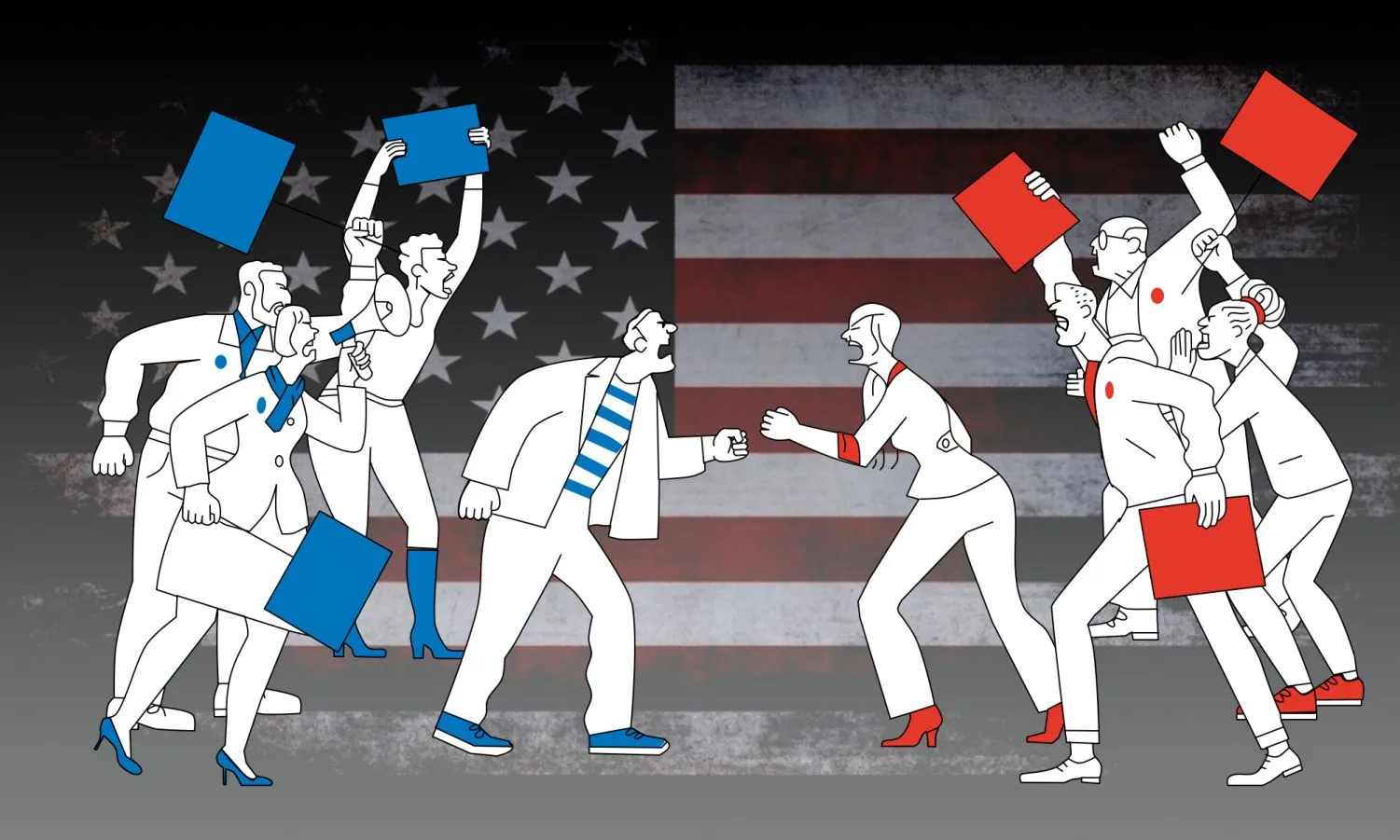Political polarization refers to the growing ideological distance between political parties or groups, resulting in more extreme and opposing viewpoints. This phenomenon has significant implications for governance, impacting everything from legislative efficiency to public trust. This article examines the effects of political polarization on governance, including its causes, consequences, and potential strategies for mitigating its impact.
Understanding Political Polarization
1. Definition and Causes
Political Polarization:
Political polarization occurs when political attitudes and opinions become more extreme and divided. It often results in a stark ideological divide between political parties or groups.
Causes:
Several factors contribute to political polarization, including:
- Media Influence: The rise of partisan media outlets can reinforce existing biases and amplify divisive rhetoric.
- Social Media: Online platforms can create echo chambers, where users are exposed primarily to viewpoints that align with their own.
- Demographic Changes: Shifts in population demographics can lead to political realignments and increased polarization.
2. Types of Polarization

Ideological Polarization:
Ideological polarization refers to the growing distance between political ideologies. For instance, one party may move further to the left while the other moves to the right, leading to a more pronounced ideological divide.
Affective Polarization:
Affective polarization involves increasing emotional animosity between political groups. This type of polarization manifests as stronger negative feelings toward opposing parties and their members.
Effects of Political Polarization on Governance
1. Legislative Gridlock
Difficulty Passing Legislation:
Political polarization often results in legislative gridlock, where extreme partisan divisions make it challenging to reach consensus on policy issues. This gridlock can prevent the passage of important legislation and hinder effective governance.
Compromise and Cooperation:
Polarization reduces the likelihood of compromise between opposing parties. When parties are ideologically distant, finding common ground becomes more difficult, leading to stalled legislative processes.
2. Increased Partisanship
Party Loyalty:
In a polarized environment, party loyalty often takes precedence over bipartisan cooperation. Elected officials may prioritize party objectives over the common good, exacerbating divisions and reducing the effectiveness of governance.
Policy Reversals:
Frequent changes in leadership can lead to policy reversals, as each party implements its agenda when in power and dismantles the previous administration’s policies. This instability can undermine long-term planning and implementation.
3. Impact on Public Trust
Erosion of Trust:
Political polarization can erode public trust in government institutions. When citizens perceive that politicians are more focused on partisan battles than on addressing their needs, trust in government and its effectiveness can decline.
Polarized Perceptions:
In polarized environments, individuals may view political opponents as less credible or trustworthy. This perception can further deepen divides and make it challenging to build consensus on important issues.
Case Studies of Polarization Impact
1. United States
Government Shutdowns:
In the U.S., political polarization has contributed to several government shutdowns, where budget disagreements between parties lead to temporary closures of government agencies. These shutdowns highlight the difficulties of governing in a highly polarized environment.
Healthcare Reform:
The debate over healthcare reform, particularly the Affordable Care Act (Obamacare), illustrates how polarization can result in contentious and protracted policy battles. Efforts to repeal or amend the law have been met with significant partisan resistance.
2. Brazil
Political Crisis:
In Brazil, political polarization has contributed to a series of political crises and impeachment proceedings. The polarization between supporters of President Jair Bolsonaro and his opponents has led to intense political conflict and instability.
Policy Challenges:
The polarization has affected the government’s ability to implement effective policies on issues like corruption and economic reform. The divide has complicated efforts to address pressing national challenges.
Strategies for Mitigating Polarization
1. Promoting Bipartisanship
Encouraging Collaboration:
Fostering a culture of bipartisanship can help mitigate the effects of polarization. Initiatives that encourage dialogue and collaboration between parties can promote more effective governance and reduce gridlock.
Cross-Party Initiatives:
Creating platforms for cross-party initiatives and joint problem-solving can help build trust and facilitate compromise. Engaging in bipartisan discussions on key issues can bridge divides and enhance legislative effectiveness.
2. Addressing Media and Social Media Influence
Media Literacy:
Promoting media literacy can help individuals critically assess information and reduce the impact of partisan media. Education programs that emphasize critical thinking and fact-checking can mitigate the influence of biased sources.
Platform Regulation:
Regulating social media platforms to address misinformation and echo chambers can reduce the polarizing effects of online discourse. Implementing policies that promote transparency and accountability can improve the quality of political dialogue.
3. Enhancing Electoral and Political Reforms
Electoral System Reforms:
Reforming electoral systems to encourage more diverse representation can reduce polarization. Systems that promote proportional representation or ranked-choice voting can create incentives for broader political participation and reduce partisan extremism.
Political Party Reforms:
Encouraging internal party reforms to promote diversity of thought and reduce extremism can help mitigate polarization. Supporting moderate candidates and policies within parties can create space for more balanced political discourse.
Conclusion
Political polarization presents significant challenges to governance, including legislative gridlock, increased partisanship, and reduced public trust. While polarization can hinder effective governance and create conflict, strategies such as promoting bipartisanship, addressing media influence, and implementing electoral reforms can help mitigate its impact. As democracies navigate these challenges, fostering collaboration and inclusivity will be essential for maintaining effective and responsive governance.

